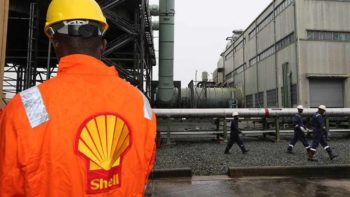
Shell is testing Nigeria’s Trans Forcados crude export pipeline for a potential restart with the Astro Perseus tanker expected to load the first cargo by the weekend, sources said on Tuesday.
The pipeline has been mostly shut since it was bombed by militants in February 2016. After repairs, exports briefly resumed in October until a new attack forced another shutdown in early November.
A spokeswoman for Shell declined to comment.
Before the attacks, the Forcados stream accounted for 200,000-240,000 barrels per day (bpd). No loading programme is expected to be issued until the pipeline is fully tested.
Companies producing oil that feeds into the Forcados stream have already been working around the long-term pipeline outage, exporting oil via barges at the Warri refinery, but this has been limited to roughly 20,000 bpd.
Seplat said it was aiming to bypass the often-attacked Trans Forcados pipeline with the Amukpe to Escravos pipeline, which is expected to be completed this year.
A full resumption of Forcados would come at a difficult time for the Organization of the Petroleum Exporting Countries, which has seen benchmark oil prices fall substantially despite a pact with other oil-producing nations to cut output, as Libya has also ramped up production.
Libya and Nigeria were exempt from the original cuts.
The group meets later this month to determine whether to extend the cuts beyond June, or potentially deepen them. Nigerian Oil Minister Emmanuel Ibe Kachikwu said his country would voluntarily join the cuts if its production reached 1.8 million bpd. Forcados is the last major oil stream yet to resume exporting.